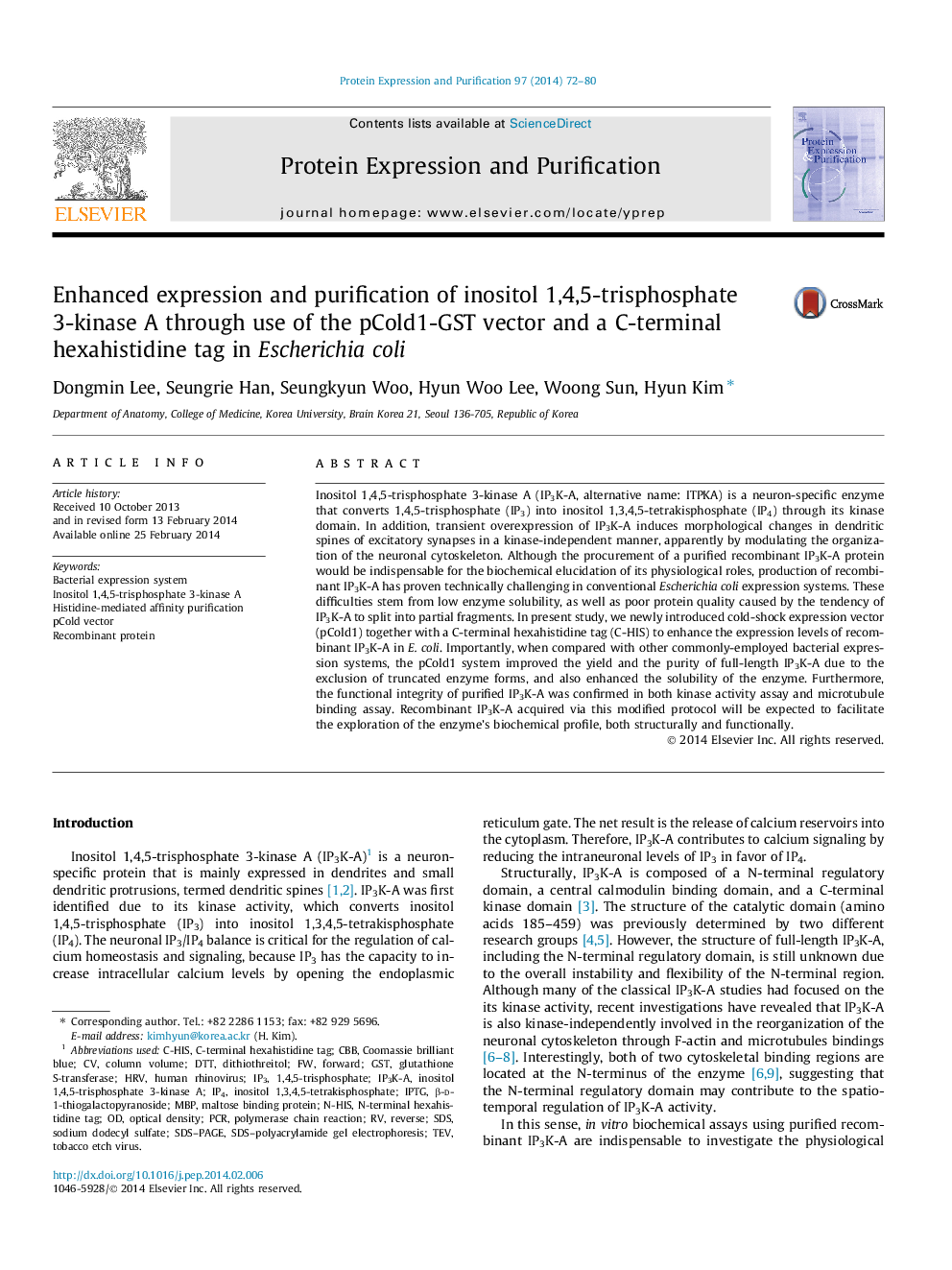| Article ID | Journal | Published Year | Pages | File Type |
|---|---|---|---|---|
| 2020498 | Protein Expression and Purification | 2014 | 9 Pages |
Abstract
Inositol 1,4,5-trisphosphate 3-kinase A (IP3K-A, alternative name: ITPKA) is a neuron-specific enzyme that converts 1,4,5-trisphosphate (IP3) into inositol 1,3,4,5-tetrakisphosphate (IP4) through its kinase domain. In addition, transient overexpression of IP3K-A induces morphological changes in dendritic spines of excitatory synapses in a kinase-independent manner, apparently by modulating the organization of the neuronal cytoskeleton. Although the procurement of a purified recombinant IP3K-A protein would be indispensable for the biochemical elucidation of its physiological roles, production of recombinant IP3K-A has proven technically challenging in conventional Escherichia coli expression systems. These difficulties stem from low enzyme solubility, as well as poor protein quality caused by the tendency of IP3K-A to split into partial fragments. In present study, we newly introduced cold-shock expression vector (pCold1) together with a C-terminal hexahistidine tag (C-HIS) to enhance the expression levels of recombinant IP3K-A in E. coli. Importantly, when compared with other commonly-employed bacterial expression systems, the pCold1 system improved the yield and the purity of full-length IP3K-A due to the exclusion of truncated enzyme forms, and also enhanced the solubility of the enzyme. Furthermore, the functional integrity of purified IP3K-A was confirmed in both kinase activity assay and microtubule binding assay. Recombinant IP3K-A acquired via this modified protocol will be expected to facilitate the exploration of the enzyme's biochemical profile, both structurally and functionally.
Related Topics
Life Sciences
Biochemistry, Genetics and Molecular Biology
Biochemistry
Authors
Dongmin Lee, Seungrie Han, Seungkyun Woo, Hyun Woo Lee, Woong Sun, Hyun Kim,
